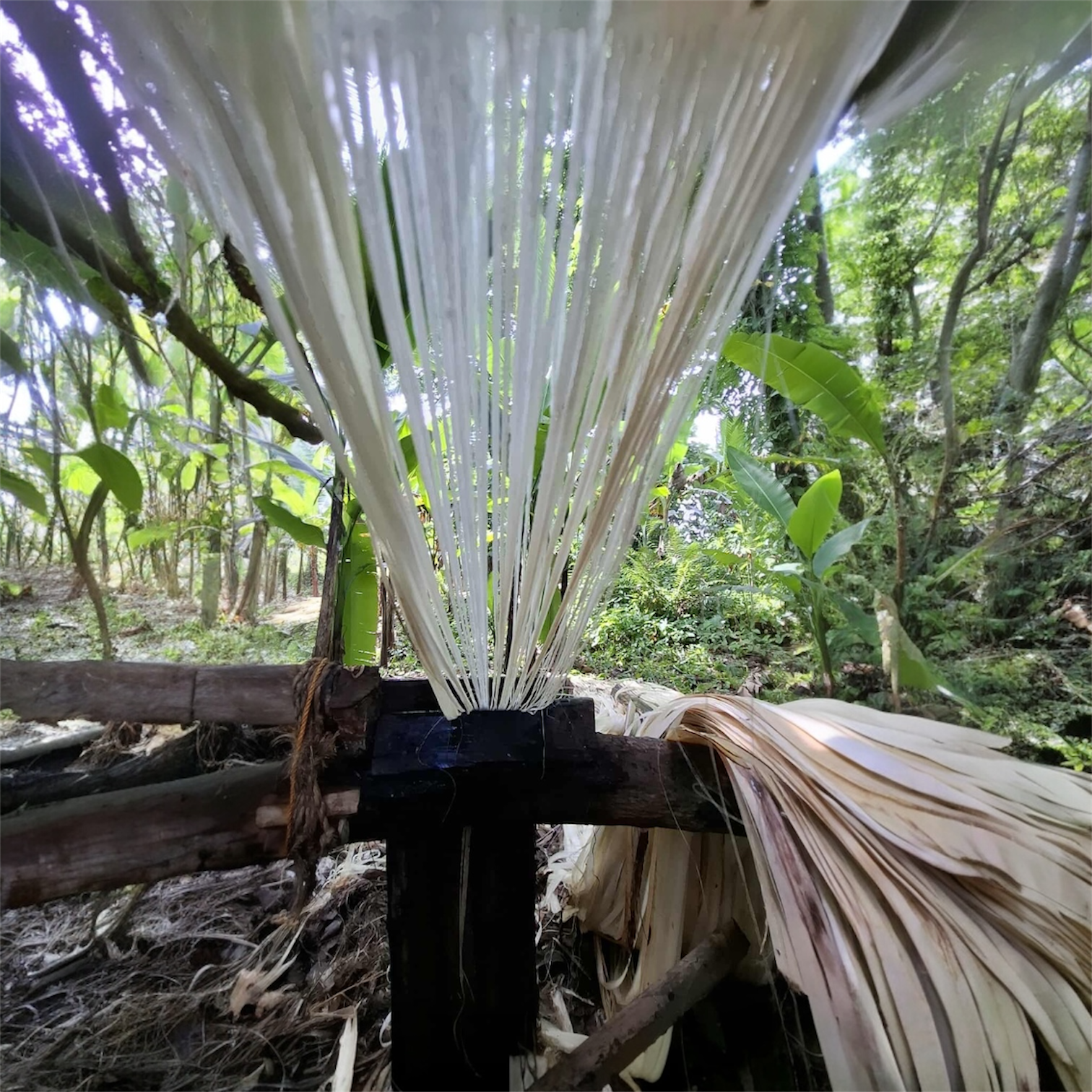Our Story
Clean Market Bag started with a simple Idea: replace plastic bags with something that actually lasts. After years of testing different plant fibres, such as jute, sea grass, cotton, and coconut, we found the answer in Manila hemp (abaca), a strong, sustainable, and naturally antibacterial fibre. What began as a solution to plastics when grocery shopping has evolved into partnerships with retailers and hospitality groups worldwide, helping them achieve their sustainability goals.
Clean Market Bag was developed not only as a consumer product, but as a scalable solution for retailers and institutions seeking to eliminate single-use plastic without compromising performance or brand integrity.
Clean Market Bag’s founder, Jocelyn, with the founder of Burt Bees, Burt Shavitz
Abaca, also known as Manila hemp, is a powerhouse fibre. It is naturally antibacterial, strong, and gets stronger when it gets wet; no wonder it has been used for years as a marine rope to haul ships. The same fibre is trusted in making paper, textiles, and Japanese banknotes.
The Material Advantage
Crafted by Filipino
Women Weavers
Every Clean Market Bag’s bag is handwoven and sewn by women weavers in the Philippines. It is not made in an industrial factory, and no chemicals are used.
Sustainability At
The Source
Our supply chain starts with abaca farmers in the Philippines who harvest and strip the fibre by hand. By working directly at the source, we reduce waste, support rural communities, and ensure every bag is made responsibly from field to finish.




